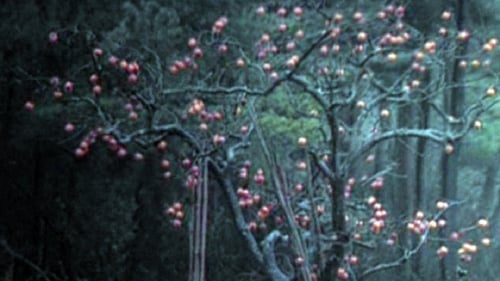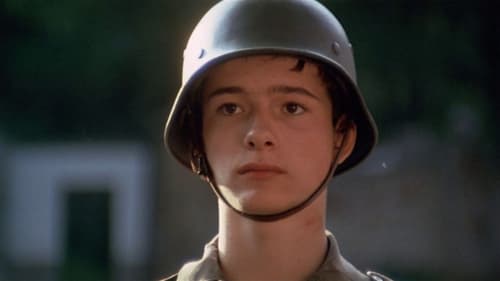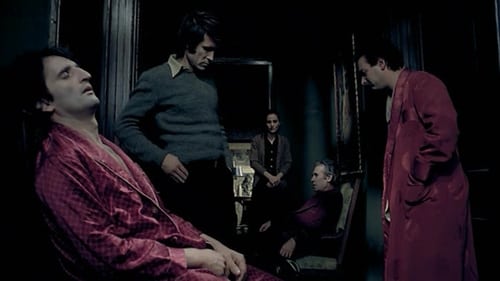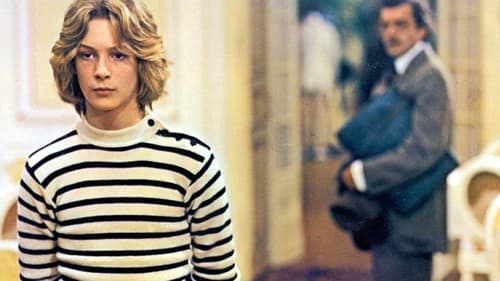
Compositor

Original Music Composer
For Mahler, symphonies always were a means of interpreting the most convoluted philosophical problems that couldn’t be resolved verbally. The ambitious structure of the five-part Fifth Symphony spans from the Funeral March to the roaring finale. It is a forthright attempt to resolve the tragic conflict with the surrounding world. The brilliant fourth part of the symphony, Adagietto, resembles a beautifully mysterious flower that every conductor reimagines in their own style. As one of the twentieth century’s most influential maestros, Mahler redefined the conductor’s role. For him, the conductor is just as integral to his own musical works as they are to the composer. When a maestro steps onto the podium and opens the score, he recreates musical universes from scratch. Teodor Currentzis and the musicAeterna orchestra have performed Mahler’s symphonies around the world for many years. The Fifth Symphony has earned its place as one of the highlights of the cycle.

Music
The night seems terribly dark, of an unfathomable blackness where the worst nightmares dwell. For the archer Yin, however, the night is made of shadows, brown or reddish, velvety or light, as if it were inhabited by flying beings that cannot be seen during the day, like wings of darkness.

Original Music Composer
Claudio Abbado and his hand-picked players of the Lucerne Festival Orchestra take their acclaimed Mahler cycle to a new level with this audiovisual recording of the most complex and compelling of the symphonies, the intense, searching Ninth. Abbado brings all his renowned clarity of vision and the experience of a lifetime to this contradictory music half valedictory, half life-affirming and his orchestra of soloists, including some of the leading instrumentalists of our time, revels in the transparent textures and virtuosity of Mahlers last completed symphony.

Original Music Composer
A world-class pairing, the Los Angeles Philharmonic and their charismatic new Music Director Gustavo Dudamel, mark the start of their partnership with this concert, filmed live at the Walt Disney Concert Hall. The program defines everything that is fresh and exciting about their collaboration: a John Adams world premiere, City Noir, music that steps back into the dark past of Los Angeles, and the allembracing First Symphony by Mahler, the composer who launched Dudamel's dazzling international career. "This was an exceptional and exciting concert by any standard." - The New York Times

Music
A story about art and educated men, and how their art and culture reveal themselves useless in the face of the harsh realities of the 20th century life.

Self - Conductor
Documents the interpretations of Gustav Mahler's compositions by conductors Bernard Haitink, Riccardo Chailly, Riccardo Muti, Claudio Abbado, and Simon Rattle, who detail the special relationship they have with Mahler's work.

Music
This intimately narrated journey from Russia to Rotterdam, via rail, road and Finnish ferry, is a melancholy meditation on divinity, time and place in art, purpose (or its lack) and the loneliness of the soul. Passing through misty snowscapes, half-glimpsed cities and the icy night sea-swell.

Music
Via the New York Times: "...a severely obscure meditation on pre-revolutionary Russia in the form of an encounter between a ghost from the past and the ghost's present-day guardian. In fact, the two characters seem to be the shade of Anton Chekhov and the young man who tends a Chekhov museum in the Crimea, though that is never made explicit."

Music
Director Wolfgang Lesowsky's captivating biopic of the Gustav Mahler stars Reinhard Hauser as the passionate conductor-composer whose drive for greatness and love of music were rivaled only by his insatiable desire for beautiful women. Through biographical narration and dramatic reenactments, Lesowsky paints a stylish portrait of the mercurial genius, widely regarded as one of the most important composers of the late romantic era.

Compositor
This television essay from 1985 was written by Leonard Bernstein to commemorate the 125th anniversary of Gustav Mahler's birth. Recorded in Israel, Vienna and later in London, it is punctuated by biographical interludes and illustrated by musical examples drawn from the cycle of Mahler's works recorded by Bernstein. Bernstein talks, plays and conducts various orchestras (Israel Philharmonic Orchestra, London Philharmonic Orchestra, Wiener Philharmoniker) and soloists (Janet Baker, Christa Ludwig, Edith Mathis, Lucia Popp, Walton Groenroos) in performances spanning 17 years. Leonard Bernstein also examines the roots of Gustav Mahler's inspiration. The programme also features music from the nine symphonies, 'The Song of the Earth' and the 'Wunderhorn Cycle'.

Music
Anne-Marie Miéville, frequent collaborator of Jean-Luc Godard, made this partner piece to Godard's own 'Je vous salue, Marie'. Marie, eleven years old, is experiencing difficult times. Her parents will separate. The perception of her universe is profoundly disturbed. This exacting portrait of a child immersed in her books, music and dancing casts a dispassionate yet touching eye on the girl's reaction to the new upheaval in her life.

Music
A neo-Nazi organization is recruiting in the 1980s, and two youths of high-school age join for similar reasons, despite class differences. Thomas is the son of a self-made industrialist father and a scolding social-climbing mother. He attends private school and has a brother who's an accomplished musician, but neither can satisfy mom's constant demands for school and social success. She belittles them, and there's incessant bickering at their table. Charly, a dropout, is the son of an abusive, alcoholic laborer. In the youth group, each finds order, respect, camaraderie, and adults who seem to value them. Where do domestic abuse and sanctioned political violence end?

Music
Symphonie mixes fiction with reality. The author, Romain Schneid, tells the story of his own claustrophobia in front of the camera when, when he was 12 years old, hiding as a Jew during the German occupation, he could not leave a tiny apartment. He tells and he plays alone all the characters in his drama. He invents, deforms, imagines another end. He is at the same time the author, the narrator and the actor (the actors). Did he really experience what he's talking about, or did all that happen in his head? Are we facing a testimony or a delusion?

Music
South Slope: What Love Tells Me is a 16mm film made in 1978-1980 by the artist Abbott Meader. It is a dramatic portrait of a piece of land in Maine as seen through the seasons filmed over a period of two years. It is both a documentary and a film poem structured to respond to the 6th Movement of Gustav Mahler's 3rd Symphony as performed by the Portland (Maine) Symphony Orchestra, which kindly donated the performance recording for use in this film. Mahler's subtitle for the 6th Movement is "What Love Tells Me."

Original Music Composer
Documentary short about the title composer, born in what was called "Czechoslovakia" when the film was made.

Music
In this black comedy, the men in a lovely mansion slowly give in to a kind of terminal sloth after they are freed from the need to actually work. The father takes to his bed after his hernia acts up and never leaves it. Of his three sons, only one wants to do much about leaving, and he does in fact cross the front threshold of the house with his lover, who is also the maid. However, before he has gotten very far, he is very tired, and goes to sleep where he stands. One of the sons outdoes them all by sleeping literally all the time. He is not in a coma -- he is just very, very lazy and tired. Some critics have viewed this film as a sharply delineated social satire.

Music
Based on a free interpretation of Gustav Mahler´s Song Cycle by the same name and a fairy tale by Hans Christian Andersen, this multiple award winning film is a striking example of Titus Leber´s approach to visualise classical music. Using his so called “multi-layer-method” to superimpose several image layers the author takes us in a dream-like lamentation-quest of a mother's winter-journey searching for her child who has been carried off by the Angel of Death.

Compositor
For Mahlerites, his symphonies are much more than musical performances--they can be an emotional or spiritual journey through the struggles, fears, and triumphs of life. This Sixth Symphony is a 1976 performance in the Vienna Musikvereinssaal with PCM stereo and DTS 5.1. The 2 dvd set also includes the 4th and 5th symphonies, which are performed as magnificently as the Sixth.

Compositor
"Four Ways to Say Farewell" is a personal introduction to Mahler and his Ninth Symphony, during which Leonard Bernstein is seen and heard rehearsing the Vienna Philharmonic Orchestra. Filmed in 1971, this rehearsal was directed by Humphrey Burton,

Compositor
Beginning with the First Symphony, Bernstein reveals Mahler's position at the hinge of modernism, while emphasizing his emotional extremism. The uplifting Second "Resurrection" Symphony, with which Bernstein had an especially long and close association, is recorded here in a historic performance from 1973, set in the Romanesque splendor of Ely Cathedral. In the Third, Bernstein encompasses the symphony's spiritual panorama like no other conductor, with the Vienna Philharmonic players alive to every nuance.

Music
Composer Gustav von Aschenbach travels to Venice for health reasons. There, he becomes obsessed with the stunning beauty of an adolescent Polish boy named Tadzio who is staying with his family at the same Grand Hôtel des Bains on the Lido as Aschenbach.



















